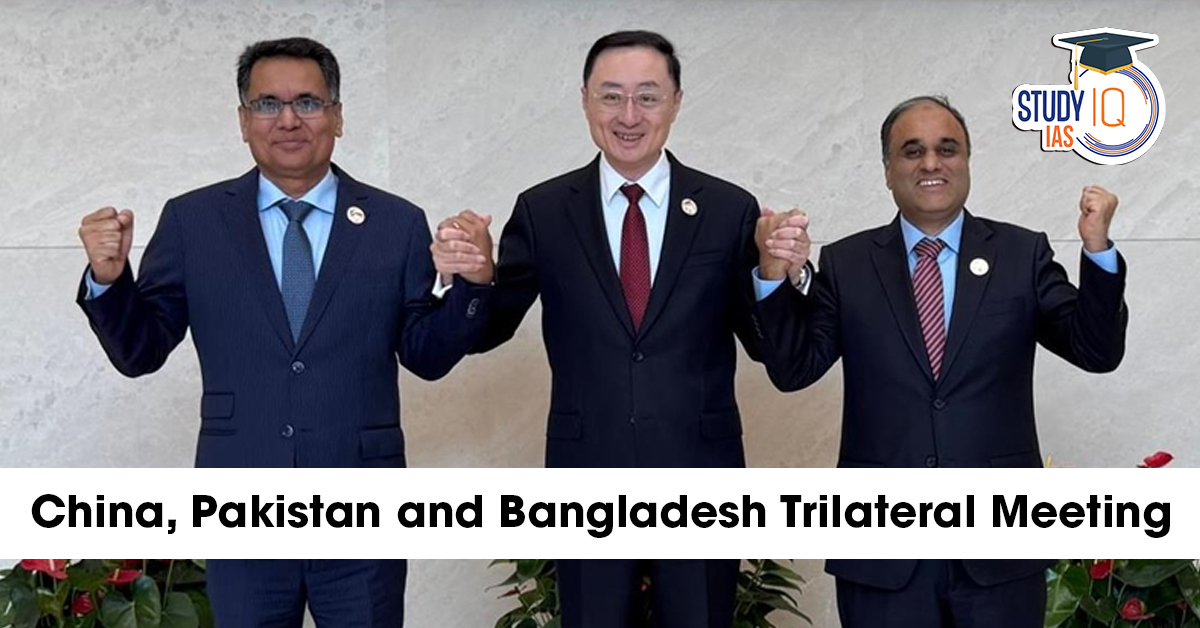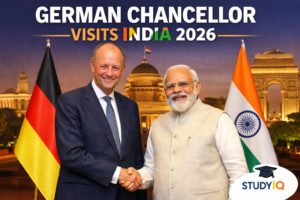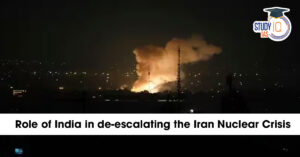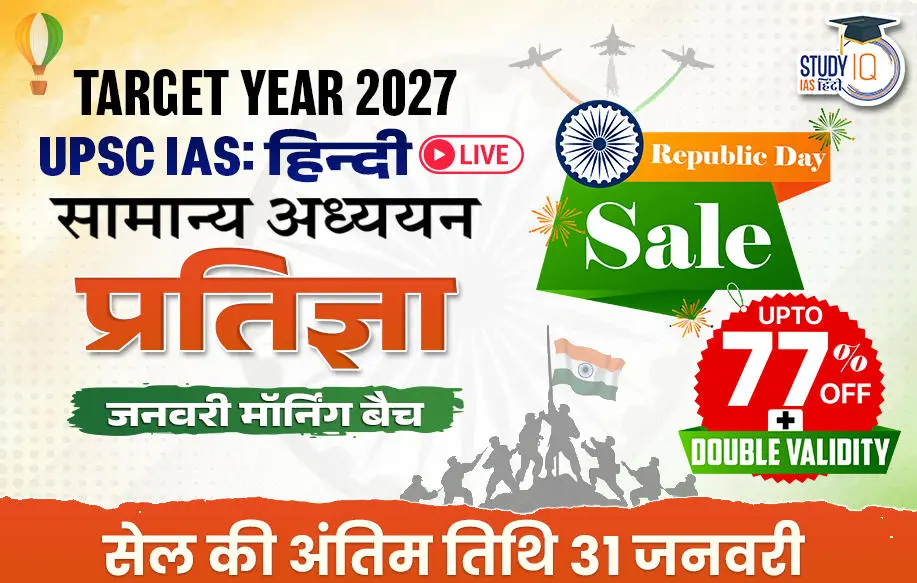Table of Contents
Context: China recently hosted the first trilateral meeting with Pakistan and Bangladesh in Kunming, a gathering seen by some as China’s effort to make Pakistan a stakeholder in the region and keep New Delhi preoccupied with immediate concerns.
China, Pakistan and Bangladesh Trilateral Meeting
A trilateral conference between Pakistan, China, and Bangladesh has just been held in Kunming, China, on 19th June 2025. The conference has raised considerable interest and concern, especially in India, as it may have geopolitical ramifications.
Areas of Focus
The talks generally encompassed cooperation across several areas, including:
- Cooperation in trade and industrial joint ventures
- Digital connectivity and maritime logistics
- Cooperation in agriculture
- Climate action, health, education, and youth exchanges
- People-to-people initiatives: A special working group was set up to execute pilot initiatives in these areas, showing a desire to formalize the trilateral dialogue.
Deterioration of Relations Between India and China
- Border Tensions: Regular standoffs and violent clashes (e.g., Galwan 2020, Doklam 2017) have soured relations, undermining trust and diplomatic engagement.
- Trade Imbalances & Technology Rivalry: Persistent trade deficits, bans on Chinese apps, and scrutiny of Chinese investments have added friction.
- Geopolitical Competition: India’s alignment with the Quad (US, Japan, Australia), Indo-Pacific initiatives, and deeper ties with the US have heightened Chinese suspicions.
- Diplomatic Setbacks: China’s blocking of India’s bid to designate Pakistan-based terrorists at the UN, and its stance on Jammu & Kashmir have created further discord.
- Recent Developments: China’s support for Pakistan after incidents like Operation Sindoor and hosting trilateral meetings without India highlight a hardening of positions.
How China Is Making Pakistan Its “Plus One” Against India
- Strategic Alliance: Since the 1962 Sino-Indian war, China has viewed Pakistan as a useful ally to “tie down” India in the region.
- Economic and Military Support: Over 80% of Pakistan’s arms imports are from China; Pakistan owes China $29 billion in loans; CPEC (China-Pakistan Economic Corridor) is a flagship BRI project.
- Diplomatic Shield: China shields Pakistan in global forums, notably at the UN regarding terrorism.
- Trilateral Engagements: By convening trilateral meetings (with Afghanistan, Bangladesh), China elevates Pakistan’s regional relevance and aims to encircle or distract India.
- Backdoor Influence: China leverages Pakistan’s historical ties with Bangladesh and Afghanistan to foster cross-border terrorism and create security dilemmas for India.
How India’s Strategy Diminished China’s Regional Hold
- Robust Military Response: India’s assertive retaliation to Pakistan-sponsored attacks (Uri, Pulwama, Pahalgam) and proactive defence of border areas (Galwan, Doklam) have raised the costs for adversaries.
- Diplomatic Outreach: India has used its economic and diplomatic clout to isolate Pakistan and build strategic partnerships (Quad, closer ties with ASEAN, US, Europe).
- Regional Engagement: India has strengthened ties with neighbours like Sri Lanka, Maldives, and Nepal by addressing economic needs, respecting political redlines, and providing developmental aid.
- Limiting Chinese Influence: Despite China’s BRI push, India’s pragmatic diplomacy and economic support have made countries like Sri Lanka, Maldives, and Nepal cautious about over-dependence on China.
- Maintaining Redlines: India’s clear signalling—through trade, diplomatic moves, and military preparedness—has constrained China’s manoeuvrability in South Asia.
- Multi-dimensional Approach: India combines security, economics, and soft power, offering attractive alternatives to China’s approach, especially as regional countries balance ties for their own interests.


 German Chancellor Visit to India in 2026...
German Chancellor Visit to India in 2026...
 Iran Nuclear Crisis and India’s Role f...
Iran Nuclear Crisis and India’s Role f...
 H1B Visa Program, Beneficiaries, Eligibi...
H1B Visa Program, Beneficiaries, Eligibi...

























